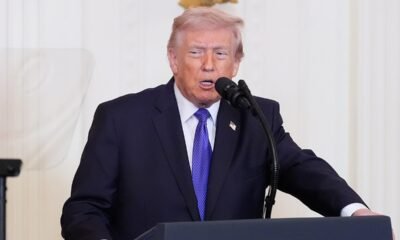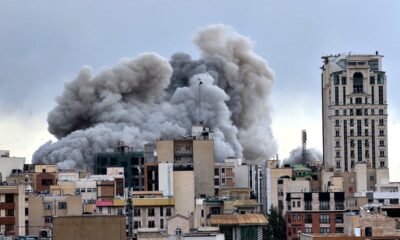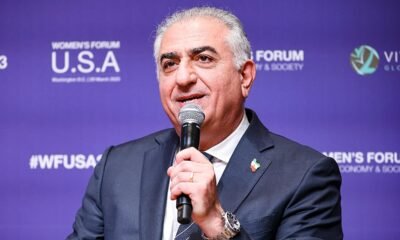INTERNACIONAL
Family of man who coined ‘genocide’ fights institute using his name to accuse Israel of war crimes

NEWYou can now listen to Fox News articles!
A growing coalition of prominent U.S. rabbis is urging Pennsylvania’s Democratic Gov. Josh Shapiro and state officials to review the Lemkin Institute for Genocide Prevention, arguing that the group has distorted the legacy of Raphael Lemkin, the Polish Jewish jurist who coined the term «genocide» by using his name to accuse Israel of committing genocide.
Joseph Lemkin, a New Jersey attorney and nephew of Raphael Lemkin, said the family acted reluctantly but felt compelled after seeing how the institute’s materials were reaching younger audiences.
«A combination of factors led us to take formal steps against the Lemkin Institute,» Lemkin told Fox News Digital. «I had heard about the Lemkin Institute’s disturbing position but initially thought it was best to let the institute continue in anonymity.
«However, when my 16-year-old son (at the time) asked me if I knew about the institute and what they were espousing on social media, I became more concerned about the impact the institution’s conduct would have on the next generation.
GROUP ACCUSED OF HIJACKING RAPHAEL LEMKIN, THE MAN WHO COINED THE TERM GENOCIDE, TO FUEL ANTISEMITISM
International lawyer Raphael Lemkin helped draft the Genocide Convention, which maps out prevention and punishment for the crime of genocide. (Getty images)
«I knew I had to do something to let the public know that the Lemkin Institute was not supported by my family. It was taken to the next level when I was connected with Rabbi Margolin of the European Jewish Association. His communication with my family made us realize that this was a far-reaching concern that should be addressed more formally.»
Raphael Lemkin coined the term «genocide» in 1944 after studying the destruction of European Jewry and helped inspire the 1948 U.N. Genocide Convention. His family says his name was never meant to be used to brand the Jewish state as genocidal, a claim they say inverts his life’s work.
The family’s complaint asks Pennsylvania officials to examine the nonprofit’s use of Lemkin’s name in public materials, including its Oct. 13, 2023, «active genocide alert,» which labeled Israel as committing genocide just days after Hamas’ Oct. 7 massacre.
Lemkin said the timing of that alert was a turning point. «
The active genocide alert is very concerning. It made us realize the horrible agenda of the Institute,» he said. «Merely days after Israelis were killed, raped, tortured and taken hostage and with no action yet taken by Israel to defend itself, the alert was issued. This makes it clear that the institute has an anti-Israel agenda and (is) not genuinely concerned about human rights and certainly not concerned about attacks on Jews. Whether the institute considers its positions as anti-Semitic … it is clear that its agenda foments antisemitism.»
EX-HAMAS HOSTAGE EMILY DAMARI RECOUNTS 471 DAYS OF SURVIVAL IN GAZA: ‘EVERYONE NEEDS TO KNOW WHAT HAPPENED’
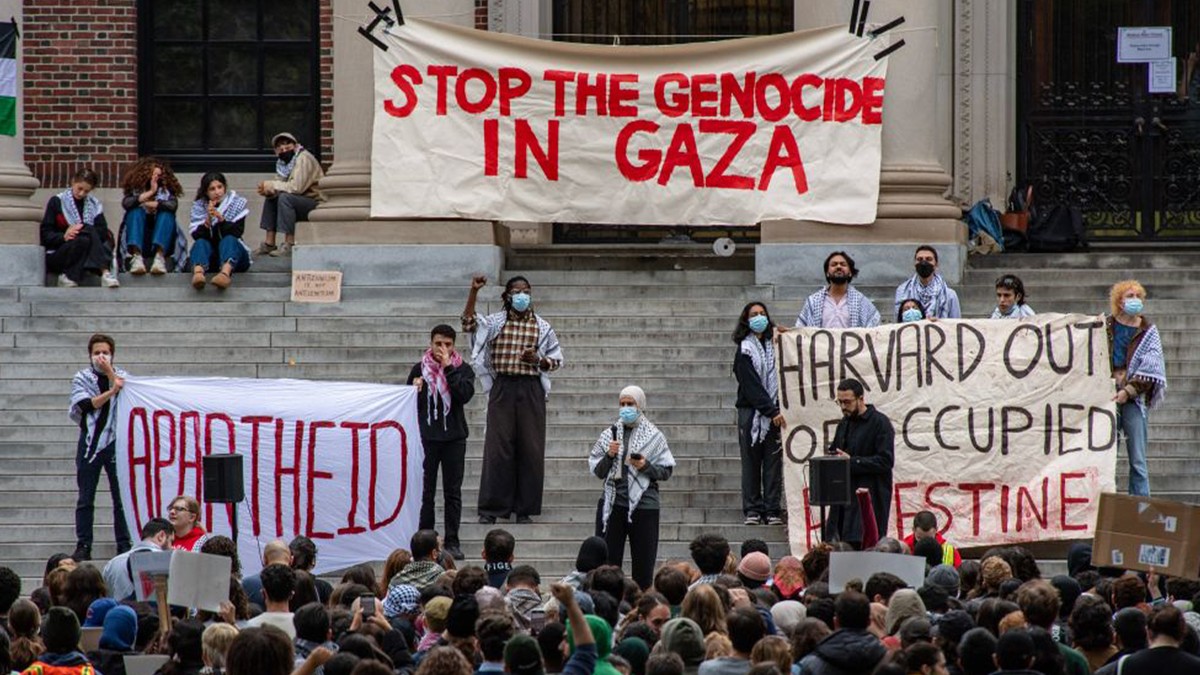
Former Harvard University President Larry Summers claimed that the school has not been «swift» enough in combating the antisemitism spreading throughout campus. (Joseph Prezioso/Contributor)
In recent weeks, a series of letters from prominent rabbis have been submitted to state officials, reinforcing the concerns raised by the Lemkin family.
Rabbi Marvin Hier, founder of the Simon Wiesenthal Center, urged the state to review whether the group’s use of «Lemkin» misleads the public about Raphael Lemkin’s historical mission. Rabbi Aryeh Ralbag, chief justice of the Union of Orthodox Rabbis of the United States and Canada, also weighed in, calling the «genocide» label applied to Israel a distortion of historical truth. Similar letters came from rabbis Yitzchak Lasry and Tal Peretz, along with additional submissions from Rabbis Dana, Ovadia and Tobali.
«In terms of rabbis taking a position, I think this is extremely important,» Lemkin said. «If an organization uses Raphael’s name to distort or invert his legacy, religious and moral leaders have a duty to defend historical truth. … When a revered public figure’s name such as Raphael, is misused, it becomes a form of false witness, which, as I understand it, is contrary to Jewish law and ethics.»
HAMAS VICTIM MEMORIAL FEATURING SHIRI BIBAS AND SONS TARGETED BY VANDALS IN MILAN, ITALY
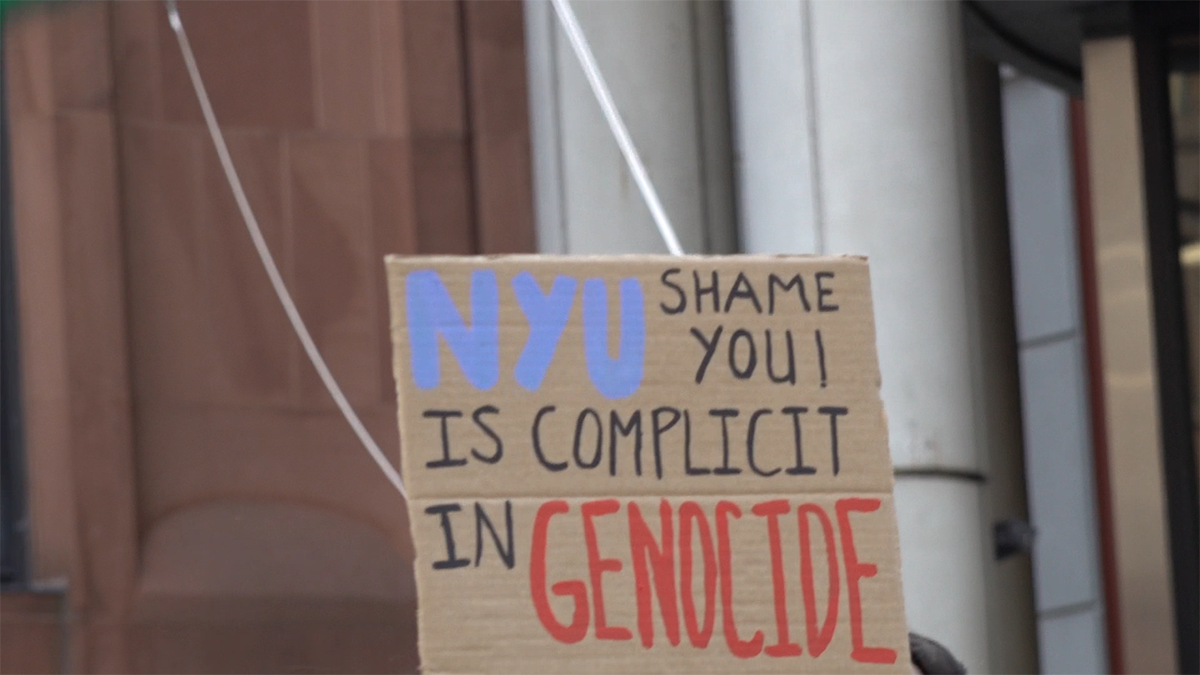
Protesters at NYU April 22 accused the school of being complicit in genocide. (Nikolas Lanum/Fox News Digital)
The rabbinic push comes as the Anti-Defamation League reports record-high antisemitic incidents in the U.S. Rabbis and family members argue that labeling Israel as «genocidal» under Lemkin’s name does more than distort history. It reinforces rhetoric that spills into real-world antisemitism.
Lemkin said the connection is clear to him.
«In terms of feeding narratives to help antisemitism spread, it seems obvious, and I believe it is supported by empirical evidence that spikes in accusations that Israel is committing genocide correlate with surges in antisemitic incidents in the U.S.,» he wrote. «From my perspective, using the ‘genocide’ trope against Israel doesn’t advance peace or justice. It just brings back antisemitic patterns. It turns the memory of Jewish victimhood into an accusation against the Jewish people and corrupts a word coined to prevent another Holocaust.
«Candidly using the word genocide against Israel while ignoring Darfur, Rwanda and Syria and others erodes the moral credibility of human rights activists, spotlighting their true antisemitic motivations.»
Lemkin also warned that antisemitic and anti-Zionist rhetoric is becoming more mainstream.
«My view of this political moment – The recent anti-Zionist rhetoric is massively troubling and scary, not only from the streets and campuses but increasingly by elected officials,» he said. «What we used to see confined to the fringe extremists is being heard in legislative chambers and political rallies.»
He said he accepts criticism of Israeli policy but rejects efforts to delegitimize Israel’s existence.
«When political leaders adopt language condemning Zionism, it is denying Jewish peoplehood itself. Such language by politicians normalizes prejudice and puts our Jewish communities at risk.»
CLICK HERE TO DOWNLOAD THE FOX NEWS APP
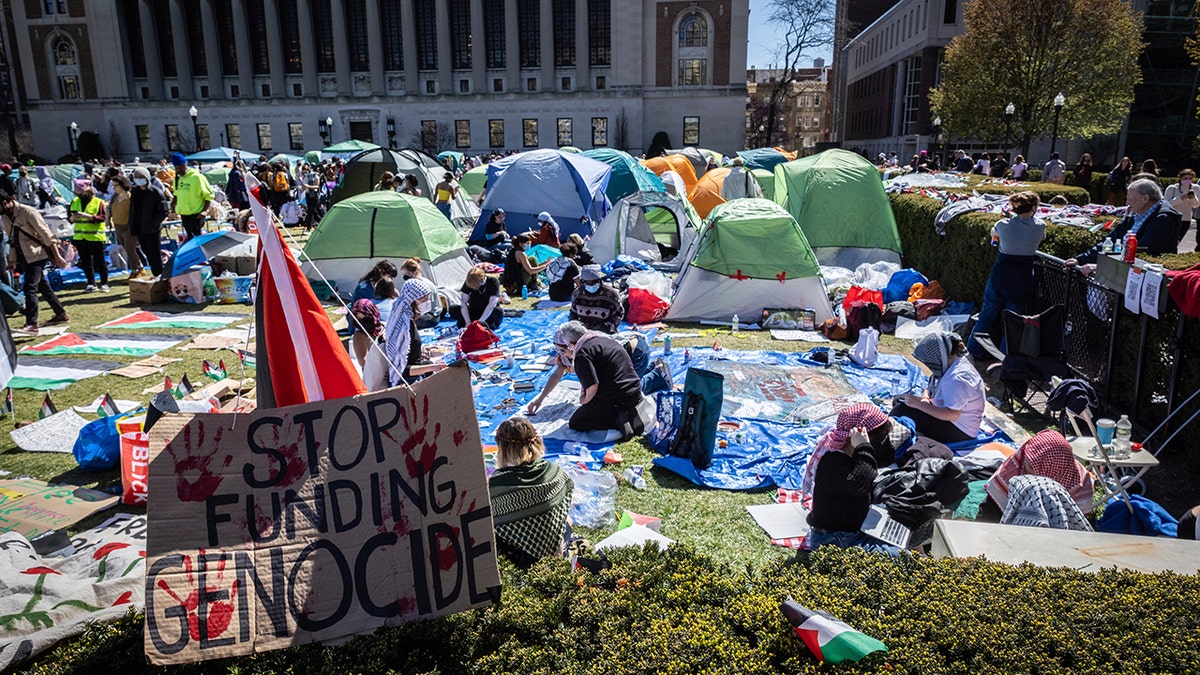
A sign at an anti-Israel demonstration encampment at Columbia University in New York April 22, 2024. (AP Photo/Stefan Jeremiah)
Asked how his uncle would respond today, Lemkin said, «I think he would be truly pained to see his name or life’s work used to distort his mission. He stood for the protection of all people and especially understood the Jewish people’s right to live in safety and self-determination.»
«To honor Raphael memory,» he said, «would be to stay true to his moral clarity by calling out real injustice and to reject rhetoric that twists his legacy and turns his message of hate against those for whom he first spoke.»
Fox News Digital reached out to the Lemkin Institute for Genocide Prevention for comment but did not receive a response.
anti semitism,israel,pennsylvania,holocaust
INTERNACIONAL
WATCH: Hillary Clinton storms out of Epstein deposition after House lawmaker leaks photo from inside

NEWYou can now listen to Fox News articles!
A newly released video shows former Secretary of State Hillary Clinton storming out of the room during her deposition for the House Oversight Committee’s Jeffrey Epstein probe last week, after exploding at Republican lawmakers for allowing a photo of her to leak.
«I’m done with this. If you guys are doing that, I am done,» Clinton said loudly after the leak was brought to her attention. «You can hold me in contempt from now until the cows come home. This is just typical behavior.»
The outburst came in response to a photo of Clinton from inside the deposition room that was posted by right-wing influencer Benny Johnson. Johnson said in his X post that Rep. Lauren Boebert, R-Colo., took the photo.
Someone off camera then said the deposition would go off the record, and Boebert can be heard in the background saying she did take a photo before the deposition began.
Former Secretary of State Hillary Clinton stormed out of her deposition before the House Oversight Committee at one point after it came to light that a House Republican leaked a photo of her inside the room. (Oversight Committee GOP)
«Oh for heaven’s sake,» Clinton cut in exasperated, thumping her fist on the table. «It doesn’t matter. We all are abiding by the same rules.»
Boebert can be heard saying she would take down the photo.
«Yeah, well,» Clinton responded aggressively as her lawyer asked to take a break.
«I’m done,» she said again, leaving the table.
The screen then promptly cut to black for a few seconds before the deposition appeared to resume moments later.
The stunning moment was part of nearly five hours of footage showing Clinton being deposed by lawmakers investigating the government’s handling of Jeffrey Epstein’s case.
Clinton stayed behind closed doors with both Republicans and Democrats from the 11 a.m. hour on Thursday, emerging to speak to reporters a little after 5:30 p.m. that evening.
The former first lady and Obama administration official told lawmakers she had no recollection of ever meeting Epstein and that she only knew his accomplice, Ghislaine Maxwell, as an acquaintance.
The deposition occurred a day before her husband, former President Bill Clinton, was similarly deposed behind closed doors for the committee’s Epstein probe.

Hillary Clinton, former U.S. Secretary of State, speaks to members of the media outside the Chappaqua Performing Arts Center in Chappaqua, N.Y., Feb. 26, 2026. (Adam Gray/Bloomberg via Getty Images)
When the testimony resumed, Clinton’s lawyer accused the Oversight majority of «violating its own rules» with the photo leak.
«I’d like to just say, for the record, we find it unacceptable, we find it unprofessional, and we find it unfair,» the lawyer said, noting the Clintons themselves pushed for a public hearing in the first place. «We are here in good faith, we are counting on good faith from all the members.»
Committee Chairman James Comer, R-Ky., can be heard responding, «I’ve advised my members that no photos or videos during the deposition can be released. I understand the posted photo was taken before the deposition started. That will not happen again. And we will look forward to continue with the deposition.»
MONICA LEWINSKY SAYS BILL CLINTON ‘ESCAPED A LOT MORE THAN I DID’ AFTER WHITE HOUSE SCANDAL
He also countered that the committee was «disappointed that the secretary’s opening statement was leaked to the press, before she even gave her opening statement.»
«It was not leaked to the press, it was provided, as with other witnesses,» Clinton’s lawyer responded. «What we don’t want is a secretary to be treated any differently than other witnesses.»
At another point, someone on the Democratic side could be heard asking Clinton about the photo leak.

Rep. James Comer, a Republican from Kentucky and chairman of the House Oversight and Accountability Committee, center, joined by Republican members of the House Oversight Committee, speaks to members of the media while arriving for a closed-door deposition with former U.S. Secretary of State Hillary Clinton at the Chappaqua Performing Arts Center in Chappaqua, N.Y., Feb. 26, 2026. (Adam Gray/Bloomberg via Getty Images)
CLICK HERE TO DOWNLOAD THE FOX NEWS APP
«I will confess that I had some concerns about whether the majority on the committee would treat me fairly and would, you know, fairly convey what I say and what I did and how I looked and how I responded,» Clinton responded, again noting the decision to have a closed deposition rather than a public hearing.
«So it was disappointing, and I regret that it happened, and it violated your rules. But that’s not the real concern I have. The real concern is, get busy, focus on the people that have something to tell you that can tell you about intelligence, money, and crimes, and get them before you. And whenever possible, do it in public.»
She was then asked if President Donald Trump should be deposed in the probe, to which Clinton answered, «Absolutely.»
Clinton noted both in her opening statement and in comments to the press after the deposition that she had never met Epstein and only knew his accomplice Ghislaine Maxwell as an «acquaintance.»
house of representatives politics,politics,jeffrey epstein,hillary clinton
INTERNACIONAL
Cómo Donald Trump decidió iniciar la guerra con Irán
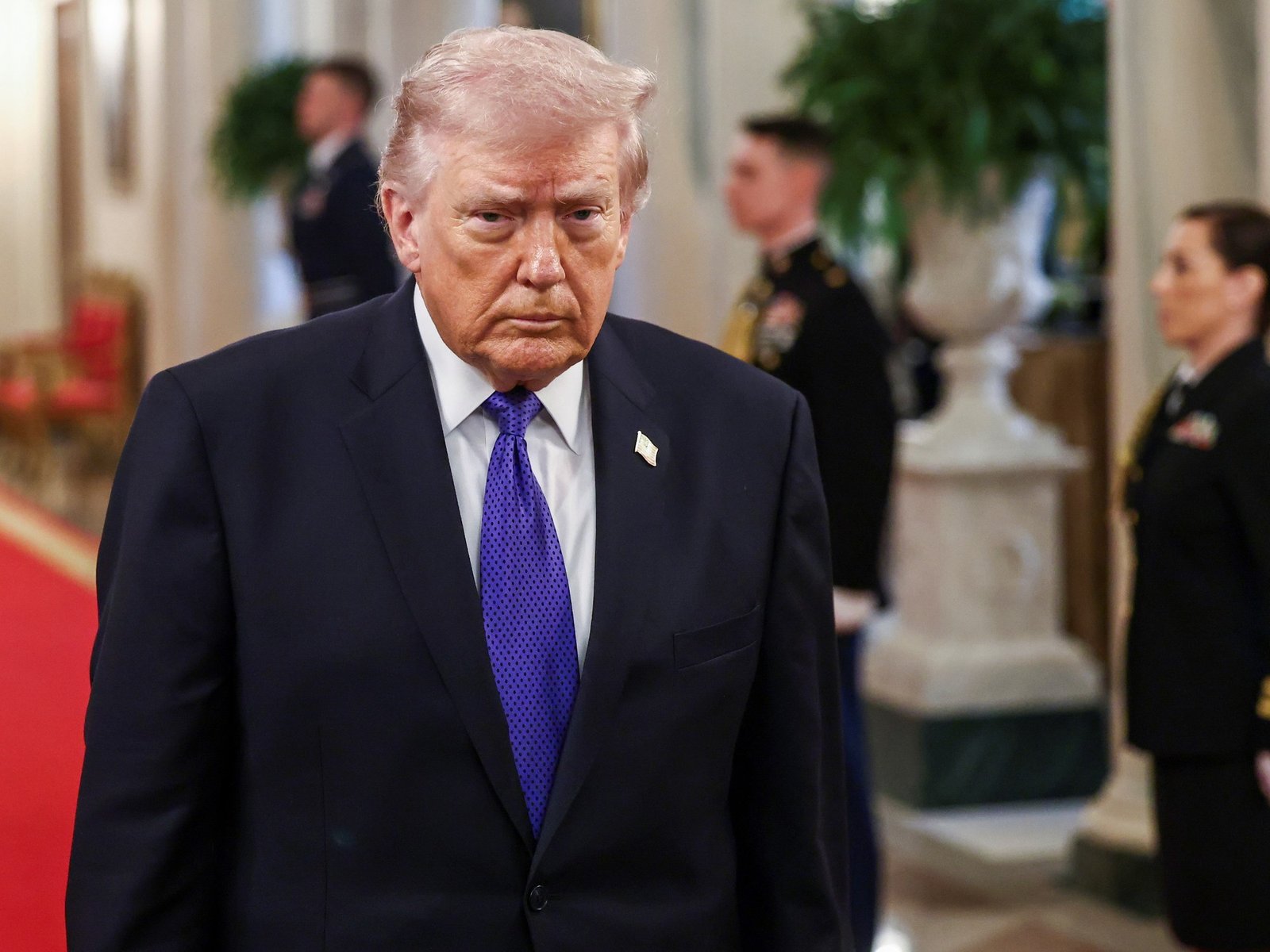
INTERNACIONAL
Trump presses NATO partners on support as Hegseth blasts hesitation

NEWYou can now listen to Fox News articles!
Secretary of War Pete Hegseth warned that some traditional U.S. allies are «hemming and hawing about the use of force» as Washington presses forward with its campaign against Iran, raising fresh questions about NATO cohesion at a moment of escalation.
Spain has refused U.S. permission to use certain bases for strikes on Iran, calling for de-escalation and adherence to international law. Turkey has criticized the operation and warned of broader regional destabilization, while President Recep Tayyip Erdoğan said he was «saddened» by Ayatollah Ali Khamenei’s death and denied that Turkish territory was used in the campaign.
In a statement released on Saturday, French President Emmanuel Macron said that, «The outbreak of war between the United States, Israel and Iran carries grave consequences for international peace and security.» He added, «The ongoing escalation is dangerous for all. It must stop.»
During Monday’s media briefing, Hegseth drew a sharp contrast between Israel and what he described as hesitant allies. «Israel has clear missions as well, for which we are grateful. Capable partners, as we’ve said since the beginning. Capable partners are good partners, unlike so many of our traditional allies, who wring their hands and clutch their pearls, hemming and hawing about the use of force.»
US President Donald Trump and US Secretary of Defense Pete Hegseth look on as Chairman of the Joint Chiefs of Staff General Dan Caine (out of frame) speaks to the press following US military actions in Venezuela, at Trump’s Mar-a-Lago residence in Palm Beach, Florida, on January 3, 2026. (Jim WATSON / AFP via Getty Images)
The criticism reflects growing frustration inside the administration that while some European capitals have issued statements of support, operational backing has not matched the rhetoric.
President Donald Trump also voiced dissatisfaction with allied hesitation. In an interview with The Daily Telegraph, Trump said he was «very disappointed» in British Prime Minister Keir Starmer for initially blocking U.S. use of British bases and that Starmer took «far too much time» to reverse course.
The United Kingdom later authorized U.S. use of key facilities, including Diego Garcia, after raising initial legal objections and following a drone strike on RAF Akrotiri in Cyprus.

NATO Secretary General Mark Rutte, U.S. President Donald Trump and Britain’s Prime Minister Keir Starmer pose with NATO country leaders for a family photo during the North Atlantic Treaty Organization (NATO) Heads of State and Government summit in The Hague, Netherlands, June 25, 2025. (Ben Stansall/Pool via Reuters)
Justin Fulcher, former senior adviser to Hegseth, told Fox News Digital the moment represents «an absolutely critical inflection point where NATO should act in a unified way in support of what the United States is doing.»
He framed the issue as larger than the current campaign. «Symbolically, the U.S.-NATO alliance is critical when looking at actually restoring deterrence globally,» Fulcher said, arguing that visible unity would send a message not only to Tehran but to other geopolitical rivals watching how the alliance responds under pressure.
FROM MISSILES TO MINERALS: THE STRATEGIC MEANING BEHIND THE IRAN STRIKE

President Donald Trump, right, speaks with NATO Secretary General Mark Rutte during a group photo of NATO heads of state and government at the NATO summit in The Hague, Netherlands, Wednesday, June 25, 2025. (AP Photo/Geert Vanden Wijngaert)
NATO Secretary General Mark Rutte has sought to downplay suggestions of division.
«I spoke with all the key European leaders over the weekend,» Rutte said on Fox News. «There is widespread support for what the president is doing.»
He added, «Europe is stepping up, is doing what is necessary to make sure this operation can go ahead and deliver all the enablement necessary.»
Germany has struck a more cautious tone. Chancellor Friedrich Merz warned in Sunday that strikes risk an Iraq- or Afghanistan-style quagmire and that Europe would bear the consequences.
At the same time, he said Berlin would not «lecture» the U.S. «We recognize the dilemma,» he said, explaining that repeated attempts over past decades had not put Iran off trying to acquire nuclear weapons or oppressing its own people. «So we’re not going to be lecturing our partners on their military strikes against Iran.»
«Despite all the doubts, we share many of their aims,» he said.
ISRAELI MINISTER OUTLINES IRAN MISSION GOALS, SAYS IRANIAN PEOPLE NOW HAVE CHANCE TO ‘REGAIN THEIR FREEDOM’

Smoke rises in Tehran following an explosion on March 2, 2026, amid ongoing U.S. and Israeli military strikes. (Majid Saeedi/Getty Images)
Fulcher contrasted the current hesitation with the strong reactions from some NATO capitals during past alliance disputes, including tensions surrounding Greenland.
«When you look at Greenland, that was obviously a very touchy subject for some countries in the Alliance,» Fulcher said. «Iran for decades has been a huge promoter and funder of terrorism all across the globe — attacks that have happened in Europe, in many NATO and European countries,» he said. «For me, it is quite shocking that we’re seeing a difficult time for many NATO members to fully unify and step up in support of the United States and what the U.S. and Israel is doing in Iran.»
He argued that Europe has a significant strategic incentive to see Iranian capabilities degraded.
«I think actually Europe and NATO have the most to gain from neutralizing the threat that emanates from Iran,» Fulcher said. «When you look at whether the ballistic missile threat or some of the state-sponsored terrorism threats, Europe has been on the receiving end of much more of these threats than the United States has in some cases.»
He stressed that support should extend beyond public endorsements.
CLICK HERE TO DOWNLOAD THE FOX NEWS APP
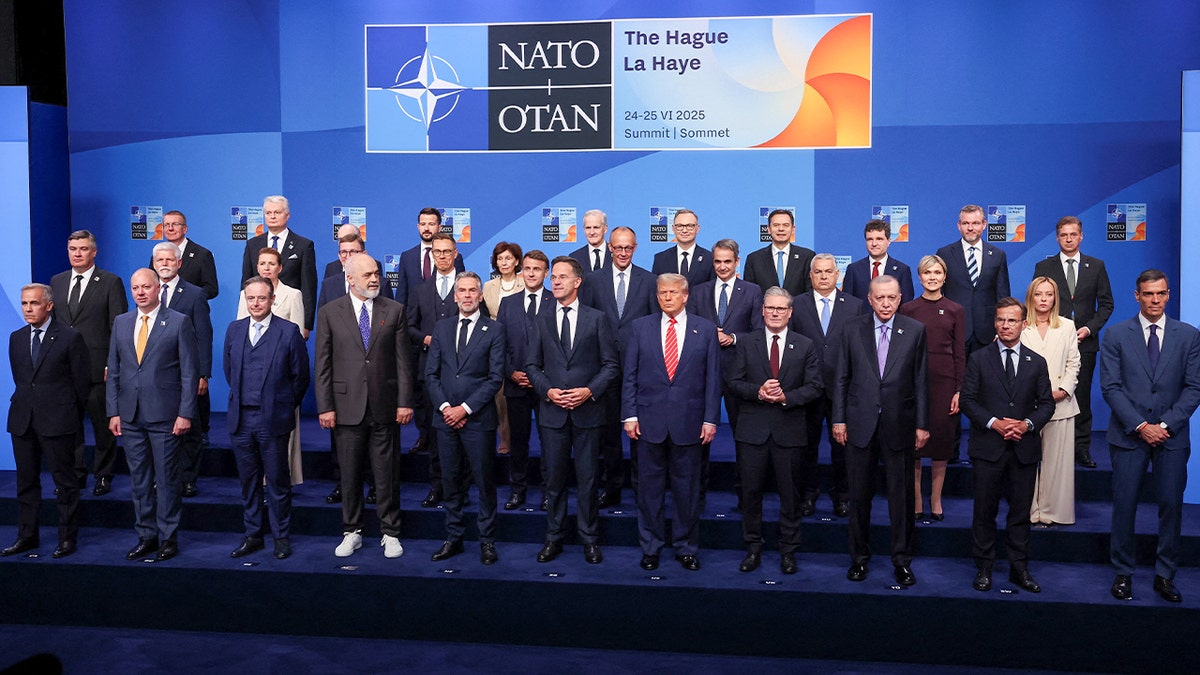
NATO leaders pose in this shot taken in June. Military leaders are meeting in Washington Tuesday evening to discuss securities options for Ukraine. (REUTERS/Claudia Greco)
«Some of our European allies can do a lot more to not just support with words, which should be the bare minimum here, but also support with actual tangible action,» Fulcher concluded.
Reuters contributed to this report.
war with iran,nato,europe,israel,donald trump,pete hegseth

 CHIMENTOS2 días ago
CHIMENTOS2 días ago¡Tensión en vivo! Aníbal Pachano y Nancy Pazos protagonizaron un cruce explosivo en la mesa de Mirtha Legrand

 CHIMENTOS1 día ago
CHIMENTOS1 día agoDestrozaron a Andrea del Boca por el terrible pecado que tuvo en Gran Hermano: “La quiero presa”, apuntaron contra la actriz por un detalle en la cocina

 CHIMENTOS2 días ago
CHIMENTOS2 días agoLas predicciones más importantes en la vida de cada signo del horóscopo en marzo, según Jimena La Torre: «Será un cambio rotundo»







